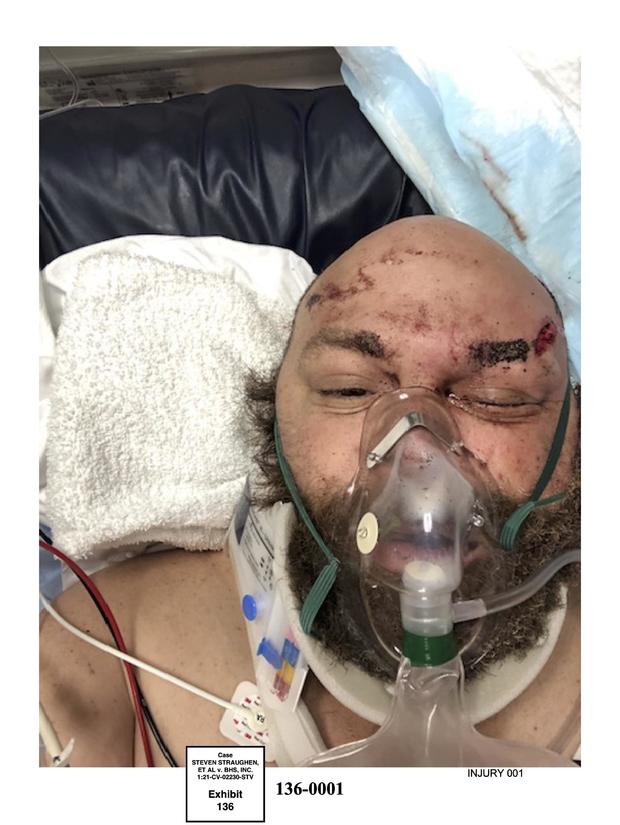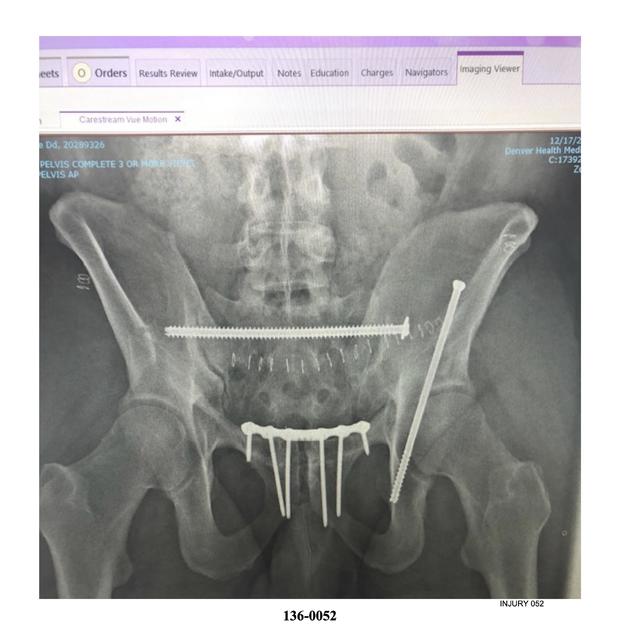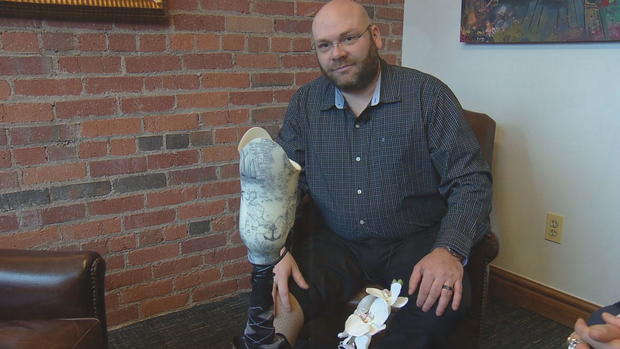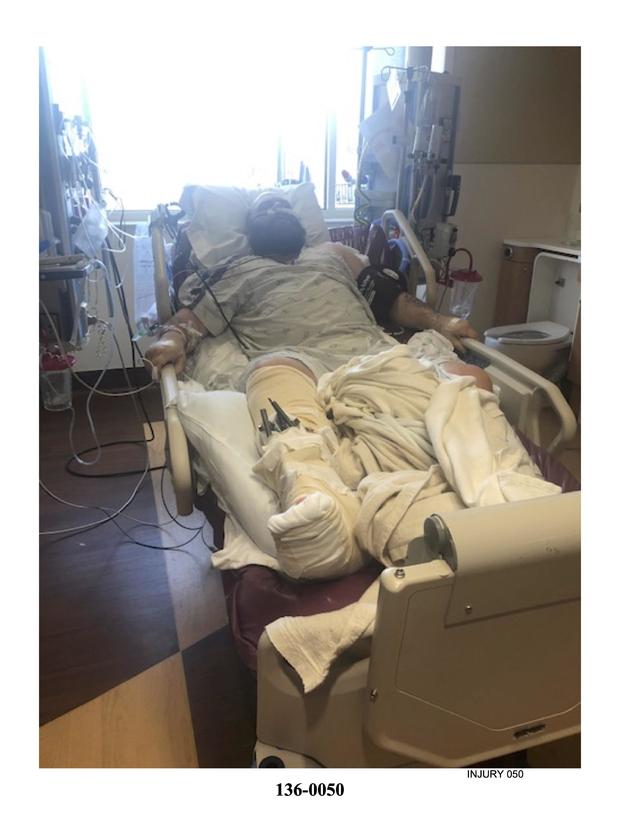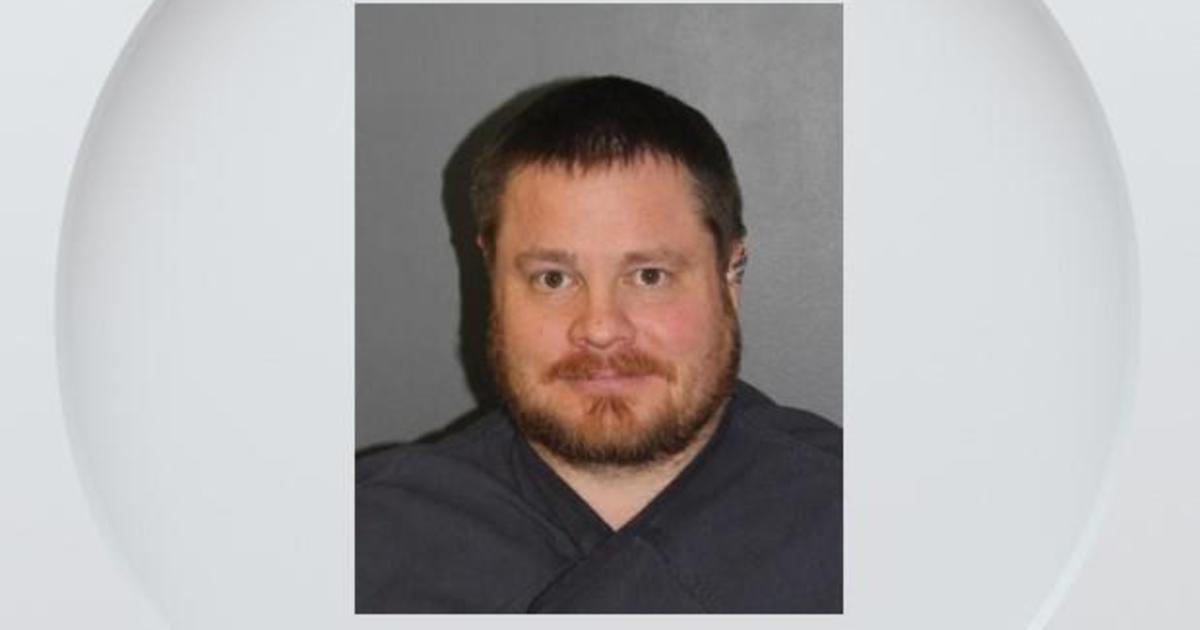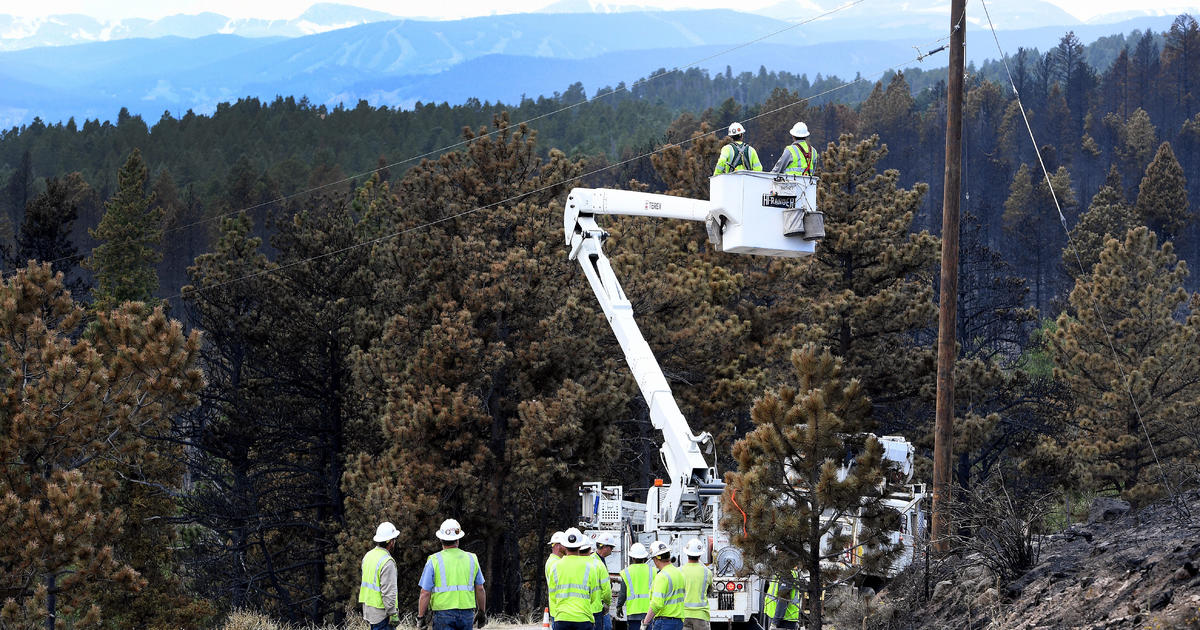Man who lost leg in fracking explosion loses $14 million from jury award, because of Colorado cap laws
A man who was critically injured while working at a fracking site in northern Colorado, Steve Straughen, won $30 million in federal court this month, but his attorney says he'll only receive about half of that, because of state laws that put caps on jury awards.
He is one of many others who have lost jury awards in Colorado, says Coloradans for Accountability, a group that's pushing for a measure on the ballot this November to eliminate caps on how much money people can be awarded in court cases.
Some attorneys argue that removing the caps will ensure that people who have suffered life-altering injuries, like Straughen, will get the money they deserve to properly move forward with their new normal.
Straughen was working on a frac tank north of Greeley in 2019 when it exploded. He recalls being thrown so high in the air, he could see the Denver city skyline.
"By the time my head turned back to the tank, boom, explosion, and my next memory is I was up quite a ways, I could see Denver," he said. "I remember looking down at where I was coming down to and thinking 'don't hit your head, land on your feet,' and the next thing I remember, I'm in the hospital."
He broke numerous bones and suffered some head trauma.
"Broke my ankle, required surgery, broke my knee, required surgery, broke my left hip, required surgery, essentially broke my pelvis in half, that also needed surgery, broke my back in a few places, broke almost all of my ribs," Straughen recalled.
Eventually, his leg had to be amputated.
"It took a while to sink in that better wasn't ever going to happen," Straughen said. "It changed everything, everything about me, everything about my family, and how we live, and how we will live forever."
Activities like sailing and snowboarding with his kids will be harder now.
"It's about time, when I got hurt, what I lost with my two children is time," he said. "Trying to get that time back and do what I can with them, that's kind of the goal with all this."
A Colorado federal jury determined this month that because the company who provided the tanks failed to properly maintain the frac tank, which led to the explosion, Straughen should be paid $30 million.
But because of Colorado laws on jury awards, Straughen's attorney, Kurt Zaner, partner at Zaner Harden Law, says $14 million of that won't be paid out.
"It's really sad, because this jury spent nine days, eight hours a day listening to all the evidence, and they didn't know that if they put the money in one category for Steve's damages, a lot of would go away," Zaner explained. "That money in the damage cap category is just nullified. The defendant and the insurance company don't have to pay it. It doesn't go anywhere. It just gets taken right off of the verdict. Steve lost his leg, and the legislature says the most pain and suffering you can have for that is $500,000 for your entire life."
Zaner supports the Colorado Trial Lawyers Association and Coloradans for Accountability in their push to put a measure on the ballot this November that would remove these caps, called initiative 150.
Colorado has caps laws on the books, because some critics have felt that the caps are important to protect companies from going out of business, and prevent insurance premiums from going up.
But Zaner points to recent studies, which have found that in other states that don't have caps, that wasn't the case.
"It's inherently unfair, and I hope that voters in Colorado make the right decision this fall and get rid of this, this relic from 40 years ago that says a legislator knows better than a jury as to how much someone suffered and how much pain they've gone through," Zaner said.
Other groups say removing jury award caps will pass costs onto consumers
There's also a bill up for debate right now in the state session, SB130, to increase medical malpractice damage caps, but some attorneys like Zaner feel it doesn't go far enough, and that's why they're pushing for ballot measure 150 to remove the caps this November.
However, some groups opposed to that measure are proposing alternative ballot initiatives instead. COPIC supports a group called Coloradans for Attorney Accountability, and is introducing ballot measures 170 and 171:
- Initiative 170 would cap attorney contingency fees in cases of personal injury and wrongful death at no more than 25%.
- Initiative 171 would require lawyers in personal and wrongful death cases to proactively and transparently disclose litigation costs to clients in civil cases.
CAA says of Initiative 150, "if caps on 'pain and suffering' awards are removed, the cost of astronomical verdicts will be passed on to consumers... passing this initiative would increase the already skyrocketing costs for Colorado consumers, business owners, and anyone with liability and auto insurance."
CAA also says that removing the cap on pain and suffering damages "will result in many medical specialists opting out of higher risk procedures."
Another group, Coloradans Protecting Patient Access, says SB130 is a balanced way to increase medical caps.
"Senate Bill 130 (SB-130) would seek to increase the non-economic damages cap to $500,000 over a 5-year period, providing a balanced approach to compensating plaintiffs of medical liability while also ensuring accessibility, affordability and stability in Colorado's health care system," CPPA says. "Our NED cap is the 5th lowest in the country and has been unchanged for 20 years. Every state has implemented some form of medical liability reform. Colorado is one of 28 states that limit non-economic damages in medical liability cases."
Meanwhile, Coloradans for Accountability says ballot initiative 150 is scheduled to be in front of the title board on March 6, where it will get a title and language will be finalized. It will then be up to voters in November as to whether or not it passes.
